WASHINGTON—The U.S. Supreme Court ruled in favor of a Colorado Christian baker who refused to design a cake for a same-sex couple’s wedding reception, but the ruling’s narrow scope prompted widely ranging responses—and even led opposing lawyers to claim at least partial victory.
The Supreme Court ruled 7-2 on behalf of cake baker Jack Phillips in Masterpiece Cakeshop v. Colorado Civil Rights Commission, but the justices focused primarily on how the commission handled the case rather than on broader questions of religious liberty and discrimination.
Commission showed ‘hostility’ toward religious convictions
The same-sex couple—David Mullins and Charlie Craig—filed a complaint with the commission, saying they were being discriminated against on the basis of their sexual orientation. Phillips insisted he should be granted an exemption to Colorado’s Anti-Discrimination Act based on his sincerely held religious views about marriage.
The state Civil Rights Commission’s consideration of the case was “inconsistent with the state’s obligation of religious neutrality,” Justice Anthony Kennedy wrote in the majority opinion, noting the baker’s refusal was based on “his sincere religious beliefs and convictions.”
“The Civil Rights Commission’s treatment of his case has some elements of a clear and impermissible hostility toward the sincere religious beliefs that motivated his objection,” Kennedy wrote.
No ‘blanket exemption’ to nondiscrimination laws
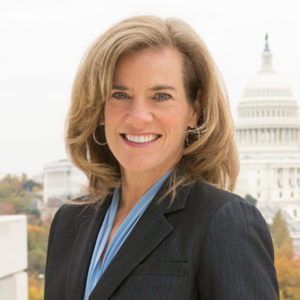
The court failed to address the core question by basing its decision on the actions of the administrative commission charged with enforcing civil rights laws, rather than determining whether the business owner violated the law by refusing to provide a service, said Holly Hollman, general counsel for the Baptist Joint Committee for Religious Liberty.
“Religious liberty protects beliefs and actions related to marriage. It does not mean that religious beliefs provide blanket exemptions to nondiscrimination laws that protect our neighbors,” Hollman said.
At the same time, she added: “Religious objectors, like all Americans, have the right to be treated with respect and not to have their religious beliefs denigrated. As we consider these difficult issues in future cases, we all will fare better when we acknowledge the legitimate interests on both sides of these disputes and approach each other with civility and respect.”
Last October, the Baptist Joint Committee filed a brief with the Supreme Court arguing Colorado’s public accommodation law, as applied in the Masterpiece Cakeshop case, “strikes the right balance between respect for religious liberty and the protection of individuals’ right to participate in the commercial marketplace free from discrimination.”
Sign up for our weekly edition and get all our headlines in your inbox on Thursdays
‘A win for all Americans’
More than a month earlier, the Southern Baptist Convention’s Ethics & Religious Liberty Commission had filed a brief arguing the “free exercise of religion by secular vocations in the marketplace should be no less protected than sacred vocations in the ministry.”
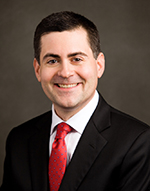
“The Supreme Court got this one right,” said Russell Moore, president of the Ethics & Religious Liberty Commission, who called the court’s ruling “a win for all Americans.”
“At stake at this debate was the question of whether or not the state can force an individual to violate their conscience. We need to live in the kind of country where we can be free to persuade one another, not bully each other into silence,” Moore said.
“The Supreme Court’s responsibility is to protect Americans from governments and agencies that would make such and demand. I’m glad to see they have. My hope is that this will be a sign that the court will continue to uphold conscience freedom and personal liberty in future cases.”
Both sides claim partial victory
The American Civil Liberties Union, which represented Mullins and Craig during the appeal process, claimed at least a limited victory, saying the Supreme Court “did not accept arguments that would have turned back the clock on equality by making our basic civil rights protections unenforceable.”
“The court reversed the Masterpiece Cakeshop decision based on concerns unique to the case but reaffirmed its longstanding rule that states can prevent the harms of discrimination in the marketplace, including against LGBT people.” said Louise Melling, deputy legal director of the ACLU.
The Alliance Defending Freedom, a legal firm that aided Phillips early in the case, likewise claimed a victory in the court’s decision, saying its “makes clear that the government must respect … (Phillips’) beliefs about marriage.”
“Creative professionals who serve all people should be free to create art consistent with their convictions without the threat of government punishment,” said Kristen Waggoner, senior counsel for the Alliance Defending Freedom.
Colorado and its Civil Rights Commission was “openly antagonistic” toward Phillips and toward his religious views about marriage, she added.
“The court was right to condemn that,” Waggoner said. “Tolerance and respect for good-faith differences of opinion are essential in a society like ours.”





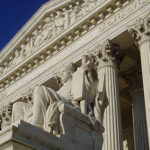
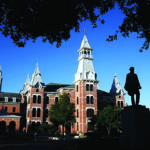

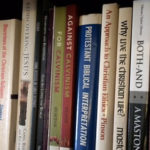





We seek to connect God’s story and God’s people around the world. To learn more about God’s story, click here.
Send comments and feedback to Eric Black, our editor. For comments to be published, please specify “letter to the editor.” Maximum length for publication is 300 words.